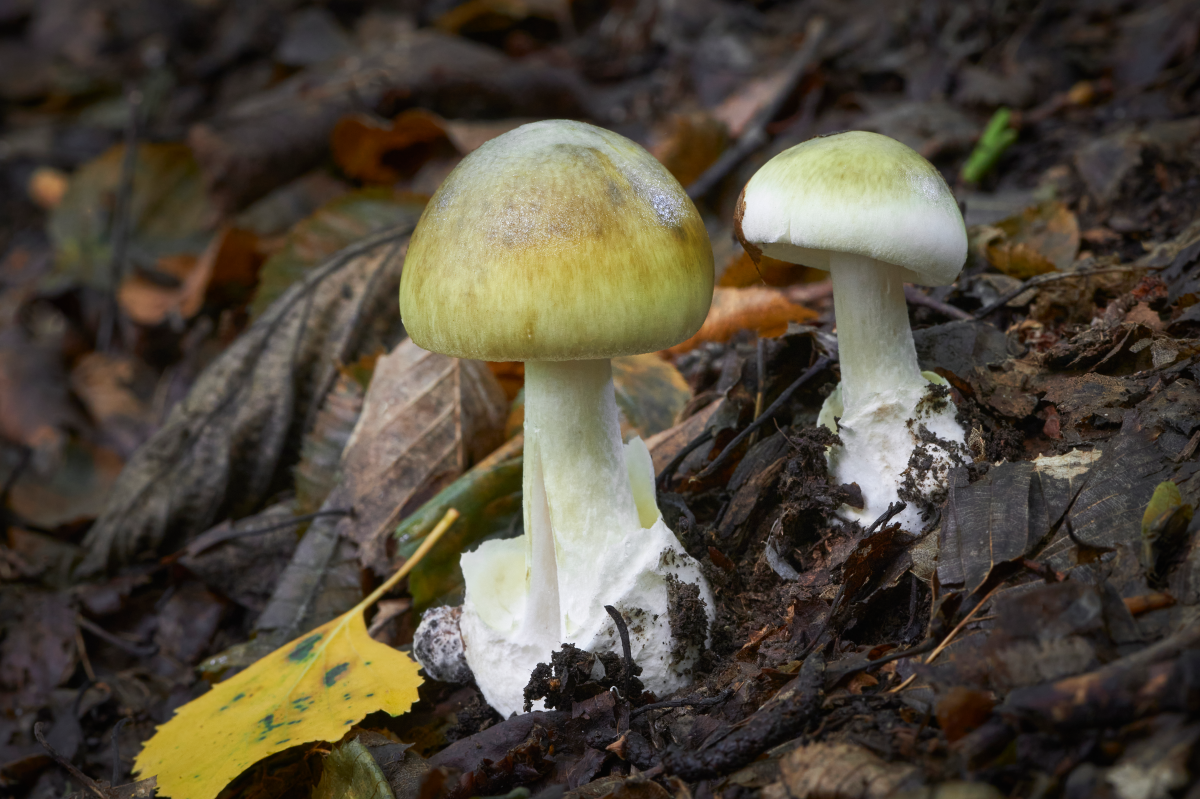Copyright Newsweek

Convicted triple-murderer Erin Patterson has lodged an appeal in the Victorian Court of Appeal in Australia, seeking to overturn verdicts that found her guilty of poisoning three relatives with death cap mushrooms during a 2023 family lunch in Leongatha, Victoria, Australia. Newsweek contacted the Victoria Court of Appeal and attorneys for Patterson for comment via email outside of normal office hours on Monday. Why It Matters The appeal of convicted triple-murderer Erin Patterson matters because it tests more than the facts of a single crime. It will measure the resilience of Victoria’s justice system under intense public scrutiny, clarify how courts weigh motive and scientific evidence in complex poisoning cases and determine whether Patterson’s 33-year non-parole sentence was proportionate to her crimes. The proceedings also highlight a growing tension between media access and fair-trial rights in an era when high-profile trials unfold in real time before a global audience. What To Know The Poisoning And Conviction Erin Patterson, a 50-year-old woman from Leongatha, Victoria, Australia, was convicted on July 7, 2025, of murdering three relatives and attempting to murder a fourth after serving them beef Wellingtons laced with death cap mushrooms during a family lunch at her home. She was accused of deliberately poisoning her parents-in-law, Don and Gail Patterson and her aunt-in-law, Heather Wilkinson, while also trying to kill Heather’s husband, Ian Wilkinson, who survived after spending weeks in intensive care. Throughout the trial, Patterson maintained her innocence, claiming the deaths were a tragic accident caused by unknowingly mixing foraged and store-bought mushrooms. However, after hearing extensive forensic and circumstantial evidence, the Supreme Court of Victoria found her guilty on all charges, ruling that she had intentionally prepared and served the fatal meal. Patterson was sentenced in September 2025 to life imprisonment with a non-parole period of 33 years for the murders of her parents-in-law, Don and Gail Patterson, and her aunt-in-law, Heather Wilkinson. She was also convicted of the attempted murder of Heather’s husband, Ian Wilkinson, who survived after weeks in intensive care. Justice Christopher Beale described the crimes as “an enormous betrayal of trust” and said they fell “into the worst category for the offenses of murder and attempted murder.” The Supreme Court jury found that Patterson deliberately laced individual beef Wellingtons with the lethal Amanita phalloides toxin, as per the Guardian. The meal was served during what was meant to be a reconciliation lunch for her estranged husband’s family. “You inflicted untold suffering on your own children whom you robbed of their beloved grandparents,” Justice Beale told her during sentencing. Patterson, who pleaded not guilty at trial, maintained the poisonings were accidental. She told the court she had mixed store-bought and foraged mushrooms, unaware that deadly death caps were among them. The jury rejected that defense after a nine-week trial that heard from more than 50 witnesses and examined over 120 exhibits. Her appeal, filed on 3 November 2025, has not yet disclosed the legal grounds. Her lawyers have confirmed the documents were lodged with the Victorian Court of Appeal but declined further comment. Inside The Trial The case, widely known as the “mushroom murder trial,” drew global attention. Prosecutors alleged that Patterson harvested the mushrooms from sites identified on the citizen-science website iNaturalist, dehydrated them with a Sunbeam food dehydrator, and later blended them into the meals. Crown prosecutor Nanette Rogers SC told jurors that Patterson’s conduct involved “four major deceptions,” the foremost being “the sinister deception… to use a nourishing meal as the vehicle to deliver the deadly poison.” The defense, led by barrister Colin Mandy SC, argued that Patterson had no motive to harm her relatives. “Erin Patterson had a motive to keep these people in her world so that they could keep supporting her and her children,” Mandy told the jury. “And there’s absolutely no doubt that Don and Gail had a great relationship with [their grandchildren] … absolutely no doubt that Erin was devoted to her children.” During sentencing, Justice Beale acknowledged the unprecedented media coverage and confirmed that Patterson had spent 15 months in continuous solitary confinement for safety reasons. “The harsh prison conditions that you have experienced … and the likely prospect of solitary confinement for the foreseeable future are important and weighty considerations,” he said. The court imposed a 33-year non-parole period partly in recognition of those conditions. The Fight Over Patterson’s Sentence According to the Guardian, Victoria’s Director of Public Prosecutions has also filed a separate appeal, arguing the sentence is “manifestly inadequate.” The dual appeals mean the case will return before appellate judges in 2026. According to Supreme Court filings, Patterson’s proceeding is listed as R v Patterson (Appeal) [2025] VRC 557. Under Rule 1.11(4) of the Supreme Court (Criminal Procedure) Rules 2017, criminal case files are not open for inspection unless the Court so directs. Applications are considered by a judge or judicial registrar, who may grant full, partial, or redacted access. If the appeal proceeds to hearing, it will likely test how Victorian courts balance intense public scrutiny against the fair-trial and privacy rights of a prisoner whose case has become a cultural touchstone. For now, Patterson remains incarcerated, maintaining that the poisoning was a tragic accident. The court’s next step will determine whether the convictions—and one of Australia’s most infamous modern murder cases—withstand appellate review. What People Are Saying Prosecutors alleged that Patterson harvested the mushrooms from various sites, according to ABC News Australia: “As well as foraging mushrooms before the lunch, Erin said she had bought dried mushrooms from an Asian grocer in Melbourne’s south-east. Erin told the court the grocer-bought mushrooms were ultimately mixed up with foraged mushrooms in a plastic container in her Leongatha pantry. She said it was this container of mixed mushrooms she later drew upon to remedy a ‘bland’ mushroom paste for the beef Wellington lunch—with disastrous consequences.” Richard Edney, Patterson’s barrister during an administrative hearing October 2, said, as per ABC News: “There will be an appeal against conviction.” A Supreme Court of Victoria media adviser told Reuters via email October 6: “The Director of Public Prosecutions has filed an appeal against the sentence of Erin Patterson with the Court of Appeal.” What Happens Next Erin Patterson has lodged an appeal in the Victorian Court of Appeal to challenge her convictions and 33-year non-parole sentence for the 2023 mushroom poisonings, with her lawyers yet to disclose the grounds of appeal. The court will review the case to determine whether any legal or procedural errors occurred during her trial, while the Director of Public Prosecutions has also appealed, arguing that her sentence was too lenient. Both matters are expected to be heard together in 2026.



